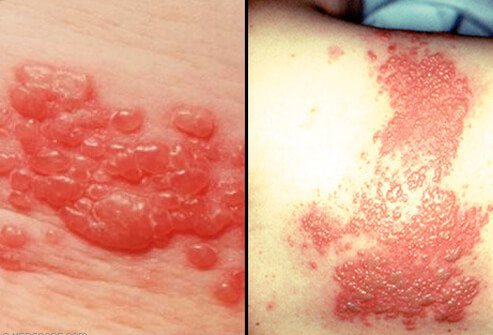Is Herpes Zoster Contagious?

Herpes zoster is a virus that causes both shingles and chickenpox. While shingles itself is not contagious, the virus is contagious and can be spread to people who have never had chickenpox or have not received a vaccine.
After a person has been infected by the herpes zoster virus, they may develop painful blisters (shingles). When these blisters or sores are open, physical contact can cause the virus to spread to other people.
Until symptoms have completely healed, a person with shingles should avoid physical contact with anyone, especially the following:
- Those who have never had chickenpox.
- Those who have never had a chickenpox vaccine.
- People with a weakened immune system due to conditions such as diabetes, cancer, transplant or human immunodeficiency virus (HIV).
- Pregnant women.
- Newborn babies.
What are shingles?
Shingles is a painful rash that appears on one side of the body, head or face.
People who have had chickenpox in the past are at a higher risk of getting shingles. Once you recover from chickenpox, the virus may remain inactive in your body and become active years later in the form of shingles.
Postherpetic neuralgia (PHN) is the most common complication of shingles. Other complications include:
- Eye problems: If you develop shingles in and around the eye, this can lead to eye infections that may result in:
- Pneumonia: Pneumonia can occur if the virus affects the lungs.
- Encephalitis: The virus can affect the nerves and cause inflammation of the brain, also called encephalitis. Encephalitis can lead to
How does the herpes zoster virus spread?
The herpes zoster virus that is shed from shingles lesions is highly contagious and can be spread through direct contact with the fluid caused by rash blisters.
Shingles have not been known to spread during intercourse or via sexual contact, although touching open sores will lead to a high risk of contracting the virus.
The herpes zoster virus has been detected in the saliva and nasal secretions of the affected individuals. So theoretically, the virus can be spread through kissing, although this is very rare.
How to prevent the risk of transmitting the herpes zoster virus
If you have shingles, cover your rashes with sterile bandages. Allow the skin to air dry before covering the blisters with calamine. Avoid touching your rashes and wash your hands often.
Getting vaccinated can also lower your risk of developing shingles in the future. Shingrix is an effective vaccine that provides more than 85% protection against the virus.


